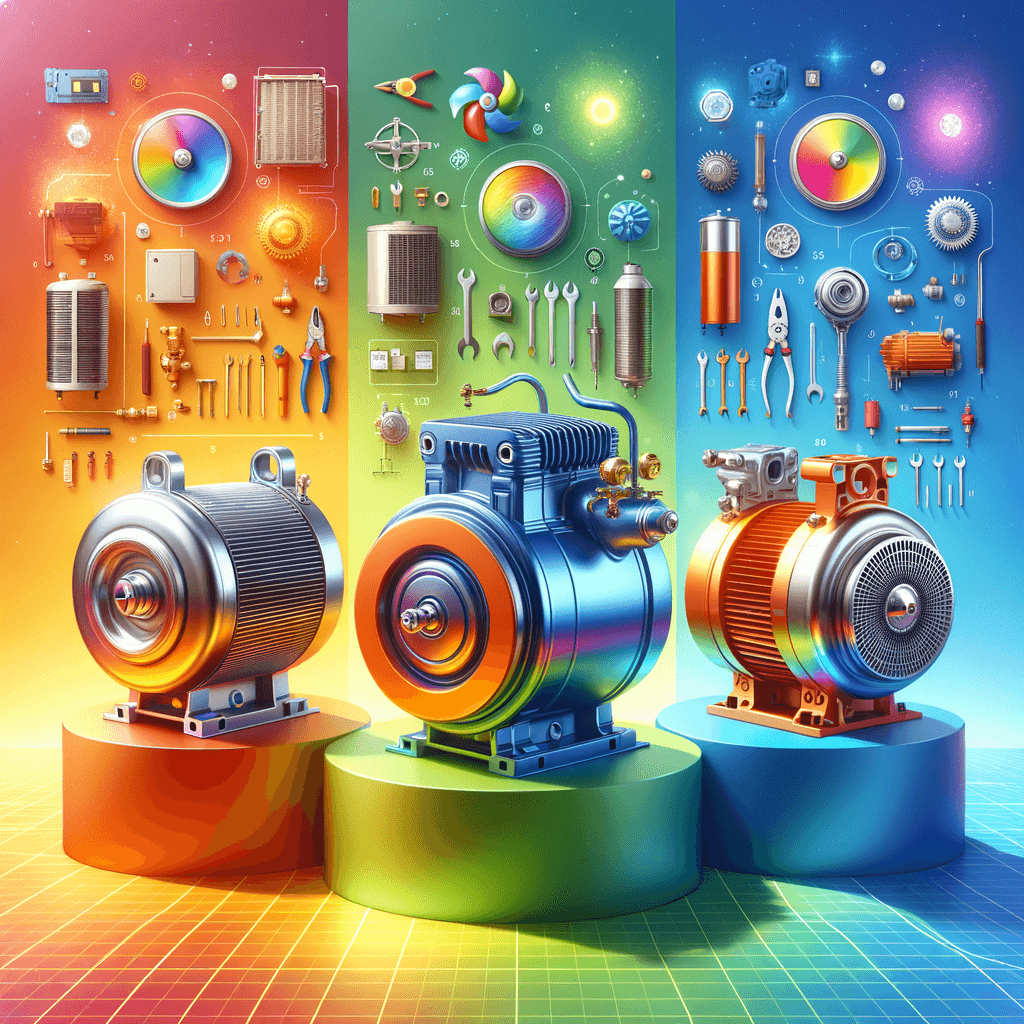
Understanding Air Conditioner Compressor Types: Scroll vs. Rotary vs. Reciprocating
By Total Care Air Conditioning Mon Oct 06 20258 minutes

Introduction: Why Compressor Choice Matters in Air Conditioning
The compressor is often called the heart of an air conditioning system, driving the refrigeration cycle and directly impacting efficiency, noise, and reliability. Many homeowners and facility managers overlook the importance of compressor type, leading to mismatched systems and avoidable costs. Understanding the differences among scroll, rotary, and reciprocating compressors is crucial for making an informed decision that aligns with your comfort goals and budget.Compressor Basics: How They Power Your Cooling
Every air conditioner relies on a compressor to pressurize refrigerant and facilitate heat exchange. The design and mechanics of each compressor type influence energy consumption, cooling speed, and maintenance needs. Selecting the right compressor is more than a technicality—it’s a strategic choice for long-term performance.“A well-matched compressor is the single most important factor in achieving both comfort and efficiency in modern air conditioning.”
Scroll Compressors: Quiet Powerhouses for Modern ACs
Scroll compressors utilize two interleaved spiral scrolls to compress refrigerant smoothly and continuously. Their innovative design reduces vibration, minimizes noise, and delivers higher efficiency, especially in variable load conditions. Scroll compressors are favored in premium residential and light commercial systems for their reliability and low maintenance demands.- Lower operating noise compared to other types
- Improved energy efficiency, especially at partial loads
- Fewer moving parts, leading to enhanced durability
- Reduced risk of refrigerant leaks due to compact design
Rotary Compressors: The Compact Solution for Space-Constrained Applications
Rotary compressors use a rotating cylinder and roller mechanism to compress refrigerant. They are known for their compact size, cost-effectiveness, and moderate efficiency, making them ideal for ductless mini-split and window AC units. While not as quiet as scroll compressors, rotary designs offer a balance of performance and affordability for smaller spaces.- Compact footprint suitable for tight installations
- Consistent performance at moderate cooling loads
- Lower initial cost compared to scroll compressors
- Simpler design, making them easier to service
Reciprocating Compressors: Traditional Workhorses with Proven Reliability
Reciprocating compressors operate much like a car engine, using pistons to compress refrigerant. They have been the backbone of air conditioning for decades, valued for their robustness and ability to handle high-pressure applications. However, reciprocating compressors are typically noisier and less efficient than modern alternatives, making them better suited for heavy-duty or industrial settings.- High-pressure capability for demanding environments
- Widespread availability and established servicing expertise
- Generally lower upfront cost
- Better suited for intermittent, high-load operation
Comparative Table: Key Differences at a Glance
| Compressor Type | Efficiency | Noise Level | Durability | Ideal Applications |
| Scroll | High | Very Low | High | Premium residential, light commercial |
| Rotary | Moderate | Low | Moderate | Ductless mini-splits, window units |
| Reciprocating | Moderate-Low | High | High | Industrial, legacy systems |
Mistakes to Avoid When Selecting a Compressor
Choosing a compressor based solely on price or capacity can result in higher energy bills, frequent repairs, or uncomfortable indoor climates. It’s essential to consider the specific cooling demands, installation environment, and long-term operating costs before making a decision.- Ignoring the importance of efficiency ratings (EER/SEER)
- Overlooking noise levels for bedrooms or offices
- Failing to match compressor type with system size and usage patterns
- Neglecting future maintenance and parts availability
Future Innovations: What’s Next for Compressor Technology?
Emerging trends in compressor design include the integration of variable speed drives, magnetic bearings, and smart diagnostics for predictive maintenance. These advances promise even quieter operation, greater efficiency, and reduced environmental impact. As climate control becomes smarter and more sustainable, expect compressor technology to play a pivotal role in shaping the next generation of air conditioning.“Tomorrow’s compressors will be defined not just by how they cool, but by how intelligently they adapt to our evolving comfort needs.”